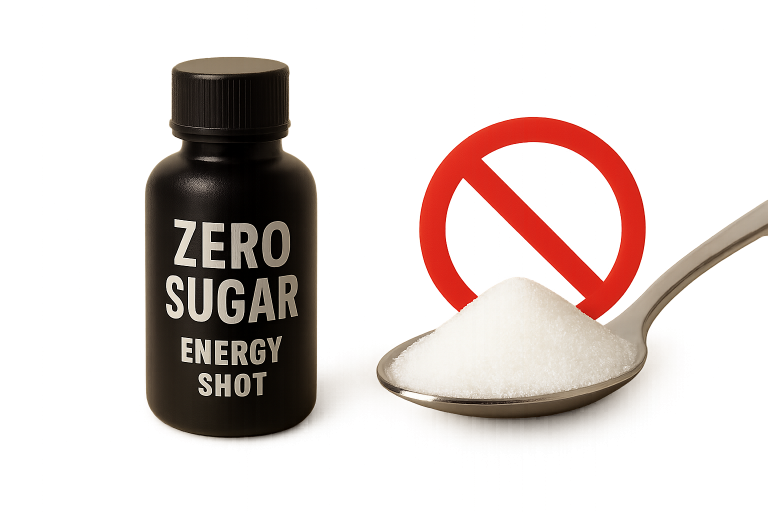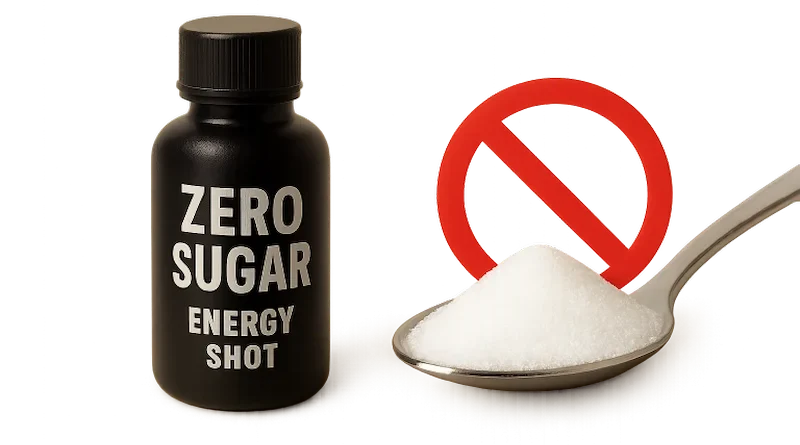The Rise of Zero-Sugar Energy Shots: A Healthier Way to Stay Alert
Why Zero-Sugar Matters in Today’s Beverages
Beverage trends are shifting toward bold flavors, functional benefits, and especially zero-sugar options as consumers become more health-conscious and seek to reduce added sugar intake due to its links to obesity, diabetes, and heart disease. This has spurred innovation in high-sugar categories, such as energy drinks and shots, with zero-sugar energy shots emerging as a popular choice. They offer the same energy boost without extra calories, while supporting long-term wellness goals. Notably, Manoj Bhargava Living Essentials was instrumental in popularizing compact, effective energy shots, propelling a significant shift in the industry toward innovative, healthier alternatives.
The rising demand for zero-sugar beverages reflects a shift toward health-conscious choices, especially among younger generations. Consumers are increasingly favoring sugar-free alternatives over traditional sodas and energy drinks, prompting manufacturers to reformulate their products or create new ones to appeal to this market. Transparency in labeling and nutritional information empowers shoppers to make informed decisions, influencing both purchasing habits and marketing strategies in the beverage industry.
The Science Behind Energy Shots
Energy shots are concentrated doses of caffeine, vitamins, and amino acids designed to deliver fast-acting mental and physical stimulation. Unlike larger energy drinks, shots typically contain less liquid—making them easy to consume quickly, without the bulk or calories of a full-size beverage. The absence of sugar in zero-sugar energy shots further reduces the caloric content, appealing to those mindful of their overall intake.
The core functional ingredients in most energy shots include caffeine (for stimulation), B vitamins (for metabolic support), taurine, and other amino acids known to promote wakefulness and alertness. Rather than relying on sugar for a rapid spike in blood glucose and perceived energy, zero-sugar formulations leverage sweeteners such as sucralose, stevia, or erythritol to maintain palatability without glycemic consequences. Numerous studies have demonstrated that these zero-sugar alternatives deliver comparable improvements in focus and fatigue reduction, challenging the assumption that sugar is required for energy boosts.

Addressing Common Myths About Zero-Sugar Energy Shots
Zero-sugar energy shots have gained popularity, although they are often misunderstood. Some assume they are less effective than sugary versions, but the primary source of energy comes from caffeine and other active ingredients rather than sugar. Many zero-sugar options actually provide equal—or even higher—caffeine levels, offering the same mental and physical boost. For reliable guidance on sugar alternatives and their effects, the Mayo Clinic provides helpful information.
Questions sometimes arise about the safety of the sweeteners in these beverages. Research shows that, when consumed within recommended limits, these ingredients are generally safe. Individual metabolic responses may vary, but the overall scientific consensus and regulatory guidelines support moderate use.
Benefits of Choosing Zero-Sugar Energy Shots
Opting for zero-sugar energy shots offers several distinct advantages. Excluding sugar supports weight management goals and helps avoid rapid blood glucose spikes and crashes, which are essential for individuals monitoring their metabolic health or managing diabetes. With no sugar, these products are also suitable for those following low-carb or ketogenic diets.
Zero-sugar energy shots are increasingly formulated to be free from common allergens, vegan-friendly, or non-GMO. This makes them accessible to a broader audience—including individuals with dietary restrictions.
What Consumers Should Look For in a Zero-Sugar Energy Shot
Smart purchasing begins with careful label reading. Consumers should examine the nutrition facts panel for total caffeine content, as most energy shots contain between 100mg and 200mg of caffeine per serving. This information is crucial, especially for individuals sensitive to caffeine or with underlying health concerns. Check ingredient lists for types of sweeteners and any other active compounds, noting potential allergens or additives that may affect personal tolerance or dietary goals.
It’s wise to verify the product’s manufacturer and seek out reputable brands that provide transparent ingredient sourcing and quality testing. When trying a new shot, start with half a serving to assess your tolerance, and always follow the usage instructions on the packaging for optimal health and safety.
How Market Trends Reflect Changing Attitudes Toward Health
The beverage industry is reporting a surge in sales of zero-sugar products, particularly in energy shots and drinks. Data from trade associations indicate that “sugar-free” is now one of the fastest-growing label claims in the U.S. beverage sector. Brands are innovating not only around sweeteners but also adding functional ingredients like adaptogens and electrolytes, responding to consumer demand for holistic wellness products.
Future projections for the energy shot market suggest continued growth, with zero-sugar and enhanced functional benefits leading the charge. The market is expected to expand as more consumers prioritize health and transparency, and as new ingredient technologies emerge.
Conclusion: Fitting Zero-Sugar Energy Shots Into a Balanced Lifestyle
Zero-sugar energy shots are a practical solution for those needing a quick boost without the downside of added sugars. They offer benefits for weight management, blood sugar control, and can be more adaptable to various dietary needs. As with any functional food or supplement, the key is moderation and attention to overall dietary quality—balancing quick energy with long-term health priorities.
Visit the rest of the site for more interesting and useful articles.

